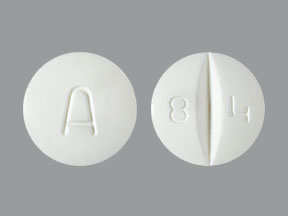Amiodarone Interactions
There are 755 drugs known to interact with amiodarone, along with 10 disease interactions, and 1 alcohol/food interaction. Of the total drug interactions, 283 are major, 430 are moderate, and 42 are minor.
- View all 755 medications that may interact with amiodarone
- View amiodarone alcohol/food interactions (1)
- View amiodarone disease interactions (10)
Most frequently checked interactions
View interaction reports for amiodarone and the medicines listed below.
- Aspir 81 (aspirin)
- Aspirin Low Strength (aspirin)
- Benadryl (diphenhydramine)
- Colace (docusate)
- CoQ10 (ubiquinone)
- Coreg (carvedilol)
- Coumadin (warfarin)
- Crestor (rosuvastatin)
- Eliquis (apixaban)
- Entresto (sacubitril / valsartan)
- Farxiga (dapagliflozin)
- Fish Oil (omega-3 polyunsaturated fatty acids)
- Flomax (tamsulosin)
- Jardiance (empagliflozin)
- Lasix (furosemide)
- Lipitor (atorvastatin)
- Metoprolol Succinate ER (metoprolol)
- Metoprolol Tartrate (metoprolol)
- MiraLAX (polyethylene glycol 3350)
- Plavix (clopidogrel)
- Pradaxa (dabigatran)
- Protonix (pantoprazole)
- Synthroid (levothyroxine)
- Tylenol (acetaminophen)
- Vitamin B12 (cyanocobalamin)
- Vitamin C (ascorbic acid)
- Vitamin D3 (cholecalciferol)
- Xanax (alprazolam)
- Xarelto (rivaroxaban)
- Zyrtec (cetirizine)
Amiodarone alcohol/food interactions
There is 1 alcohol/food interaction with amiodarone.
Amiodarone disease interactions
There are 10 disease interactions with amiodarone which include:
- dialysis
- pulmonary dysfunction
- sinus node dysfunction
- visual impairment
- cardiovascular dysfunction
- QT prolongation
- hepatic impairment
- neurologic dysfunction
- thyroid dysfunction
- electrolyte imbalance
More about amiodarone
- amiodarone consumer information
- Compare alternatives
- Pricing & coupons
- Reviews (96)
- Drug images
- Side effects
- Dosage information
- Patient tips
- During pregnancy
- Support group
- Drug class: group III antiarrhythmics
- Breastfeeding
Related treatment guides
Drug Interaction Classification
| Highly clinically significant. Avoid combinations; the risk of the interaction outweighs the benefit. | |
| Moderately clinically significant. Usually avoid combinations; use it only under special circumstances. | |
| Minimally clinically significant. Minimize risk; assess risk and consider an alternative drug, take steps to circumvent the interaction risk and/or institute a monitoring plan. | |
| No interaction information available. |
See also:
Further information
Always consult your healthcare provider to ensure the information displayed on this page applies to your personal circumstances.


